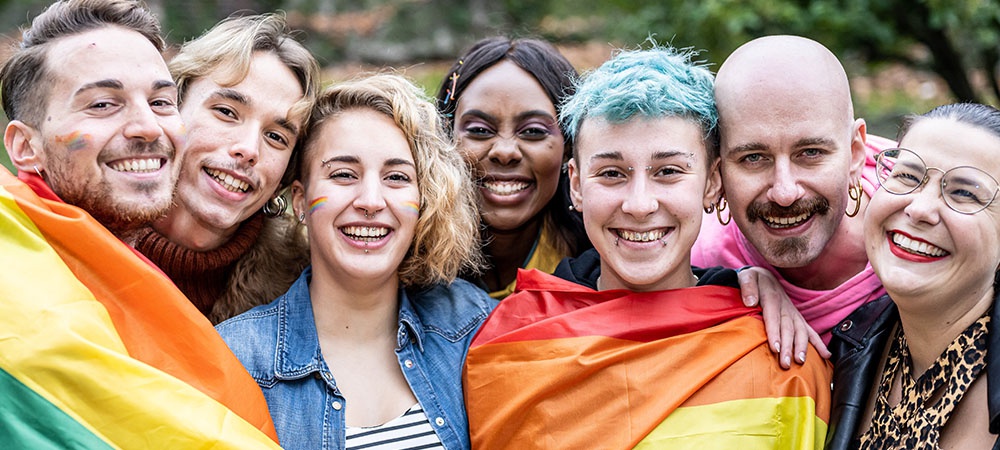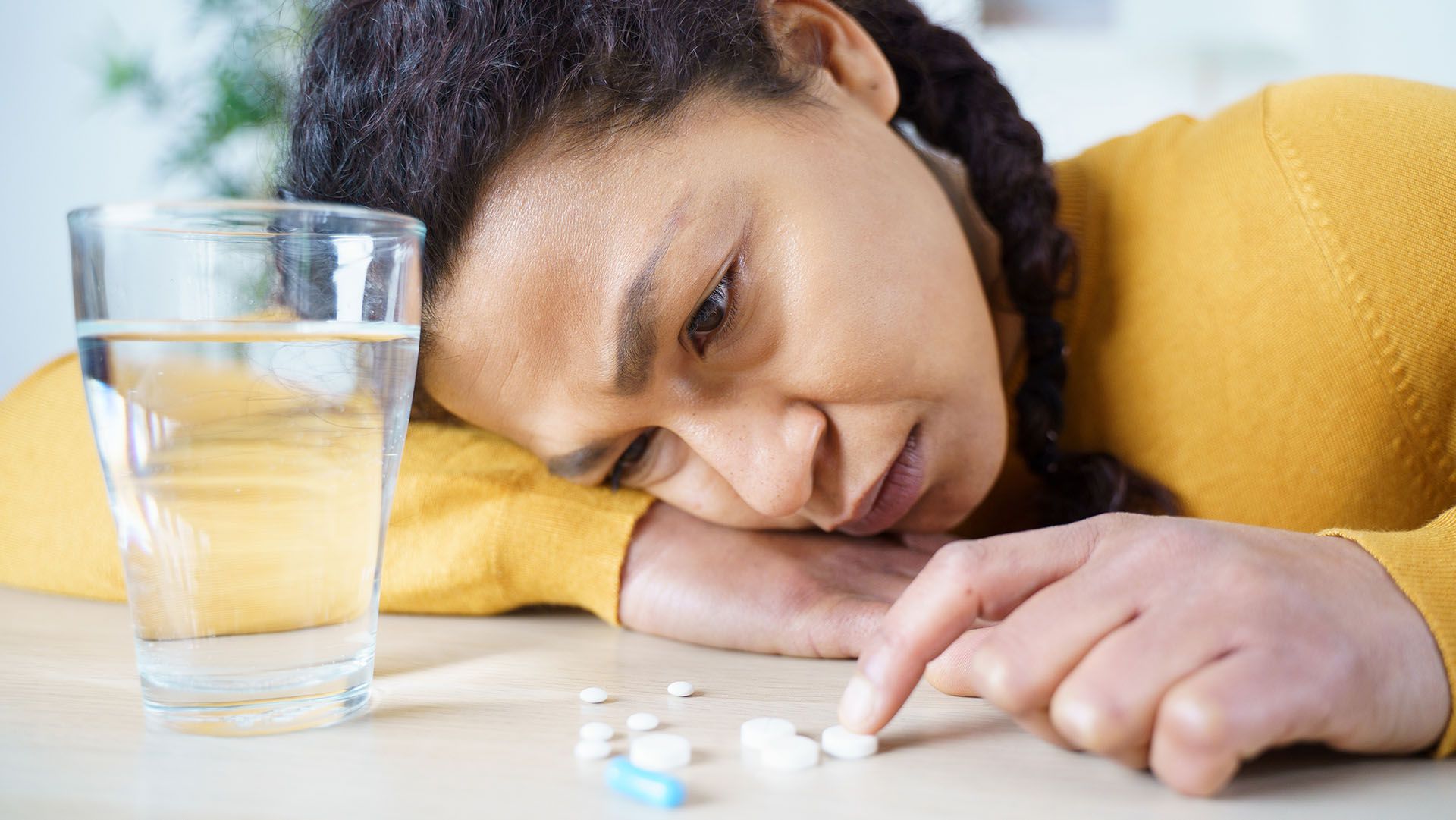Addiction in The LGBTQ Community
Individuals within the LGBTQ community experience significantly higher rates of substance abuse than heterosexual adults. Those who identify within the LGBTQ community face an extreme level of discrimination in their day-to-day lives, which compounds stress and anxiety, putting them at greater risk of seeking escape, which contributes to the higher rate of substance use. Because of this discrimination and stigmatization, queer or trans people may find it more challenging to reach out when they need help – which can already be difficult enough for heterosexuals without the compounded social barriers. Treatment centres that cater to LGBTQ addiction issues and specific needs are becoming more prevalent, and help to address the compounded stresses through the lens of intersectionality that these individuals face which can make their recovery more challenging.
Social Determinants of Health
Social determinants of health are the factors within an individual’s life that can affect their mental health, both positively and negatively. The environment in which an individual’s life has a great impact on their health – physical health and mental health are linked, and so when one is affected, the other will follow. When a marginalized group experiences discrimination, they are excluded from social acceptance in society, the opportunity for economic advancement and the expectation to live free from violence. The constant worry over these social factors is very mentally grating and creates a high level of stress, which can create serious mental health issues if not managed and often individuals will seek comfort in substances, which leads to addiction. Barriers to employment or promotion may mean that individuals who do wish to seek treatment are unable to afford it.
Homophobia in The Community
Homophobia is still prevalent within many communities in Canada, particularly in smaller communities where there is little diversity, queer people are less represented, and those struggling with gender identity and sexuality may not see many examples of happy, successful queer individuals. The public education system across Canada is not particularly diverse and is not reflective of bisexuality, transgender persons or any sexual identity beyond heterosexism. If family members are unable to have healthy discussions surrounding sexuality, then children have very little awareness of different sexual orientations or the concept that their gender and sex can be different. This can be crippling if a young adult does not feel that they fit in within their community, and they will be much less likely to seek out help should they be experiencing substance abuse or mental health issues. Adolescents are more likely to experience substance abuse problems within this social isolation, and untreated addictions and mental health issues can lead to self-harm, accidental overdose or suicide. According to current research, LGTBQ youth in Canada is 14 times more at risk of substance abuse and suicide than their heterosexual counterparts.
Transphobia in The Community
The transgender population in Canada faces huge amounts of discrimination every day – so many different social services and medical services are gendered, and a transgender person may not identify as either male or female. Transgender youth face unimaginable and unique challenges navigating everyday life, and a Canadian Trans Youth Health survey found that almost half of the participants experienced cyberbullying, 36% had been physically injured or threatened in the past year, and 70% reported sexual harassment. Many transgender issues stem from a lack of understanding from the general population that gender is not something that an individual is inherently born with, and is completely different from one’s sex. Many schools and public spaces have made the shift towards non-gendered washrooms, which is a step in the right direction but only one small hurdle transgendered people face on a daily basis.
People in the transgender community may also face barriers to service in healthcare if they are taking hormone treatments, as some facilities will refuse to treat illness, even if the illness or injury is unrelated. If trans people are discouraged from seeking medical treatment for non-stigmatized ailments and injuries, the likelihood that they would seek treatment for drug problems or heavy drinking seems minimal.
Barriers to Treatment
If an LGBTQ individual does choose to seek addiction treatment, there are still many barriers they may face. They may be hesitant to disclose details about their sexual orientation to counselors and medical professionals for fear of discrimination – by not acknowledging the trauma that may have led them to drug abuse or alcohol use, they will not be able to fully treat the subsequent actions and behaviours. An LGBTQ individual may avoid inpatient services where they may come across homophobic individuals and encounter further stigmatization and discrimination. Individuals may also lack a supportive community while they are in the treatment process, depending on their relationships with family.
Typical addiction treatments cater to cis-gendered (where one’s gender correlates to their sex), heterosexual individuals who experience stigma in society for their alcohol addiction or drug use. Bisexual individuals, lesbian, or transgender individuals, for example, may not feel that their experiences are represented within this context, and therefore the substance abuse treatment may not be effective. There is never a one size fits all template for addiction treatment services, but by not acknowledging the different obstacles and discrimination that members of the LGBTQ community face, the treatment plan will be incomplete.
LGBTQ Addiction Treatment Services
LGTBQ addiction services use intersectionality to address an individual’s issues. Intersectionally means breaking down all of the areas in which a person experiences privilege or discrimination, factors such as race, gender, ability, class, age, and sexual orientation and how this affects their health. This means that black bisexual women experience discrimination differently than Asian gay men, even if both are considered to be sexual minorities. With a more comprehensive approach to treating the health issues an addict is facing, the more likely treatment will be successful towards long-term recovery and sobriety, and in preventing relapse.
Though it may seem like a given, it is critically important that all therapists, counsellors, educators, clinicians, front-line workers and healthcare providers in the addiction services be LGBTQ affirming or supportive, even if they do not identify as such themselves. Patients are already very vulnerable, and the professionals who are there to support them on their path to recovery must hold no prejudice or discriminatory attitudes toward their patient’s sexual orientation or presentation.
Addiction Treatment Options
Though the options are more limited for LGBTQ-specific treatment centres, patients can choose between inpatient and outpatient services. At this time, the decision may be heavily influenced by the proximity of the centre and the cost, as the cost of inpatient treatment can be expensive, and the individual may or may not have private health insurance to cover the expense. Inpatient treatments can last anywhere from 30 to 90 days, and focus first on the individual’s detox and acute health problems, and then on intensive therapy and counselling. The complete removal from one’s home setting (including triggers and stressors) can be a very healthy step, and being surrounded by other members of the LGBTQ community, who are facing similar circumstances can be very affirming. Outpatient treatment methods can still be effective, as the individual will still have the chance to feel as part of a community, and receive the same moral support from other members.
Transgender addiction treatment professionals will also be able to create a detoxing plan that takes into account any hormone therapy that a transgender individual is undergoing. This specialized service is incredibly important for transgender individuals to ensure that their health needs are being met and treated effectively, and that their gender is also taken into account in treatment decisions.
Types of Treatment
Therapy: Therapy will play a large role in the recovery of an LGBTQ-identifying addict. Due to the trauma of discrimination, may individuals experience mental disorders and mental health issues, such as anxiety and depression alongside their addiction issues. Behavioural therapies can be effective. Cognitive Behavioural Therapy (CBT) can help individuals to recognize their destructive thoughts and negative behaviour patterns and reframe their response to them, which can help to overcome anxiety. One-on-one therapy allows an individual to build a rapport with their therapist, and they may feel better expressing their past experiences to one person rather than to an entire group. Anyone undergoing therapy is in a vulnerable position, but someone who may have had negative experiences with discrimination when seeking medical help may be especially reluctant to share private details. Support groups and 12-step programs can be beneficial, but one-on-one therapy is important to ensure that the individual’s own issues are dissected and treated accordingly.
Self-care: Learning practices of self-care and affirmation are incredibly important to a recovering LGBTQ-identifying addict. Oftentimes, particularly in young adults, individuals feel that they are to blame for being different and for being the victims of violence and discrimination, and this blame can quickly turn to destructive behaviour and self-harm. Instilling confidence and worthiness in recovering addicts will empower them to make healthy lifestyle choices, continue treatment, and understand that they are valuable within the community. Self-care can take on many different forms, from journaling to meditation, to physical activity – anything where the individual is doing something healthy to make themselves feel good, and taking the time to nurture their mental health. By choosing an outlet that produces these feelings of satisfaction and happiness, the brain can produce dopamine naturally, rather than relying on chemical substances and manipulation from drugs or alcohol.
Finding Community: Particularly in rural areas of Canada, LGBTQ individuals can be quite spread out, and connecting with others can be challenging. In instances where it may not be possible to meet in person, there are plenty of online resources that can connect LGBTQ individuals with others to foster a sense of community. This can be particularly helpful for youth who feel isolated in their schools or neighbourhoods. The sense of support can help empower recovering addicts, and alleviate feelings of isolation and blame which could encourage them to use again.










